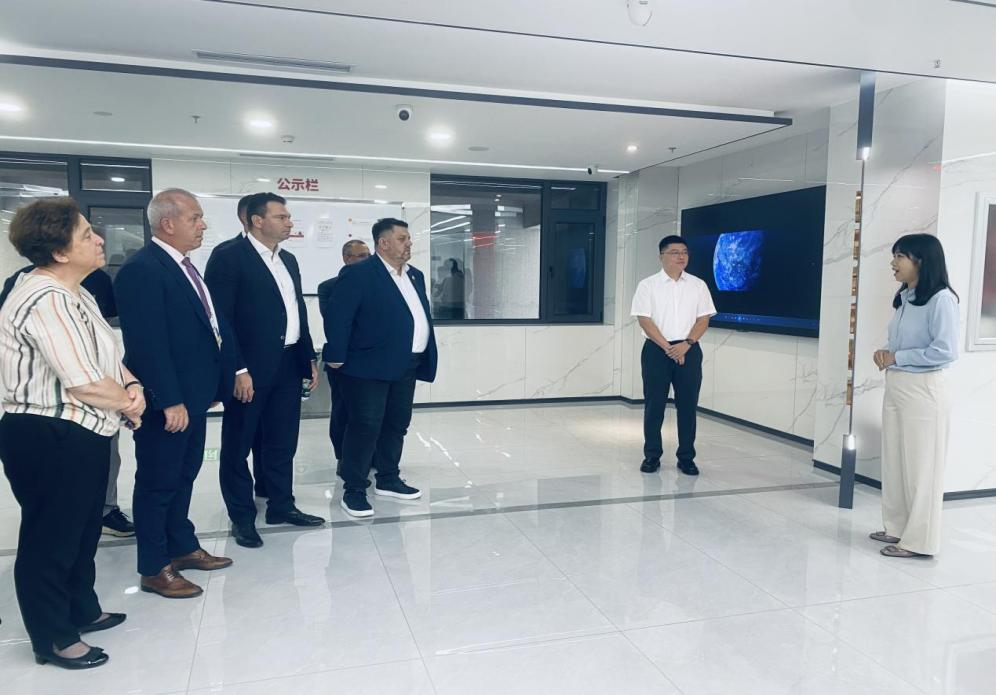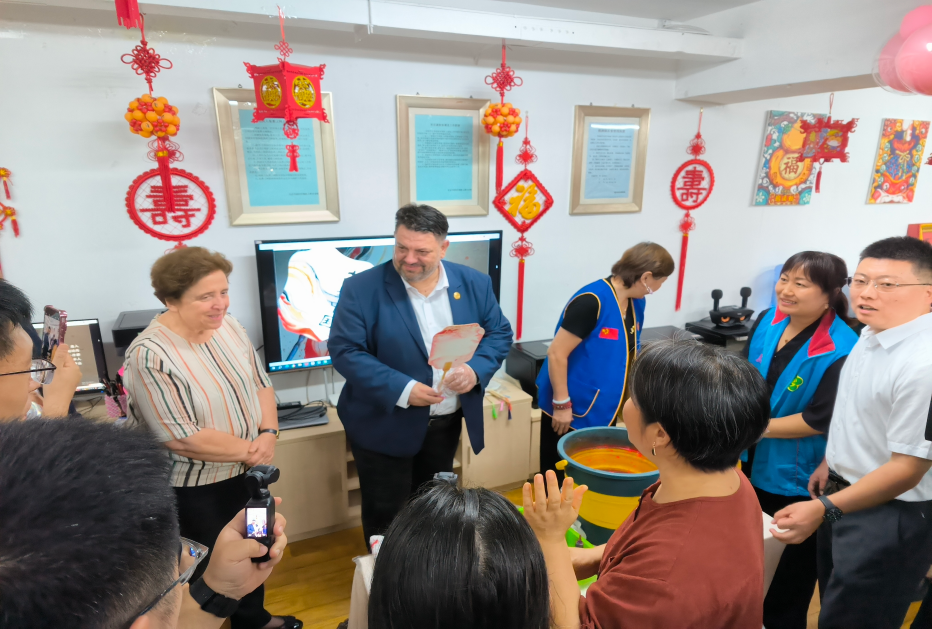Atanas Zafirov, Chairman of the Bulgarian Socialist Party and Deputy Prime Minister of Bulgaria, led a delegation to Jianwai Subdistrict in Chaoyang District on September 4. The visit took place during his stay in China for China’s V-Day Commemorations on September 3. The delegation toured the government service center, the service center for people with disabilities, and the vocational rehabilitation station, learning about community governance practices such as public services and support for the elderly and people with disabilities. They spoke highly of Jianwai Substrict’s innovative service models and the effect of precision governance.

The Delegation Visits the Government Service Center
At Jianwai Subdistrict’s government service center, the delegation gained a detailed understanding of its functional layout and public services. In the bright and spacious lobby, residents can process 83 types of administrative procedures. The government service center features a career guidance room, a nursing room, a convenient public service box, and water dispensers. It offers dedicated service counter, hearing accessibility services, and low-position counters for people with special needs, as well as bilingual services for foreign nationals. As he toured the facility, Zafirov inquired about daily service volumes and resident feedback, praising the “government services at people’s doorstep”.
Zafirov remarked that the visit gave him a direct and in-depth understanding of the “one-stop” government services, which provide residents with efficient and convenient access to various procedures. He noted that it is an approach well worth learning.
The delegation then visited Nanlangjiayuan Community in Jianwai Subdistrict. At the service center for people with disabilities and the vocational rehabilitation station, Zafirov explored services for elderly care, disability support, and vocational rehabilitation. The service center focuses on services, activities, education, and exhibitions, offering rehabilitation programs, interest-based courses, and social platforms for residents with disabilities. The vocational rehabilitation station provides vocational rehabilitation services, skill training, and social adaptation programs, helping people with disabilities access supported employment.
At the vocational rehabilitation station, several individuals with disabilities were engaged in handicraft work. Zafirov stopped to watch with great interest, warmly greeted them, and asked in detail about the training programs and employment opportunities. Learning that participants could transition into supported employment through the training, he nodded in approval. During the exchange, Zafirov was presented with a seed blind box made by participants, titled “Let Love Take Root and Grow in Jianwai”. By planting the red heart-shaped seed in soil, a random plant will grow.

Zafirov Tries His Hand at Making Intangible Cultural Heritage Lacquer Fans
At the activity room of the service center for people with disabilities, Zafirov tried his hand at making a lacquer fan by dropping small amounts of lacquer in various colors into water and rapidly spinning the fan in it. He was so captivated by the experience that he repeatedly expressed his admiration. “This year is the Year of the Snake, so we’ve also made this snake-themed Siling Duixiu, a traditional Chinese art that combines silk applique with embroidery, for you as a keepsake,” said Ren Shuanghong, head of the service center and inheritor of the Siling Duixiu.
Ms. Ren explained that all 1,112 residents with disabilities in Jianwai Subdistrict participate in activities at the service center. The handicrafts they create are not only for display, but also sold on e-commerce platforms, achieving great sales.
“The comb is beautiful and smells so nice.” “What a distinctly Chinese brooch.” “So lovely! I will give this pair of earrings to my daughter.” The delegation members could not stop praising the exquisite handicrafts. They engaged warmly with the residents with disabilities and took group photos.
As he left the community, Zafirov waved to the staff and said “Thank you” multiple times in Chinese. He noted that the community, through its innovative governance model, brings services to residents, reflecting both meticulous management and a human-centered approach. Looking ahead, he expressed hope to promote exchanges between the two countries in community governance, so that these proven practices and achievements can benefit more people in both nations.


